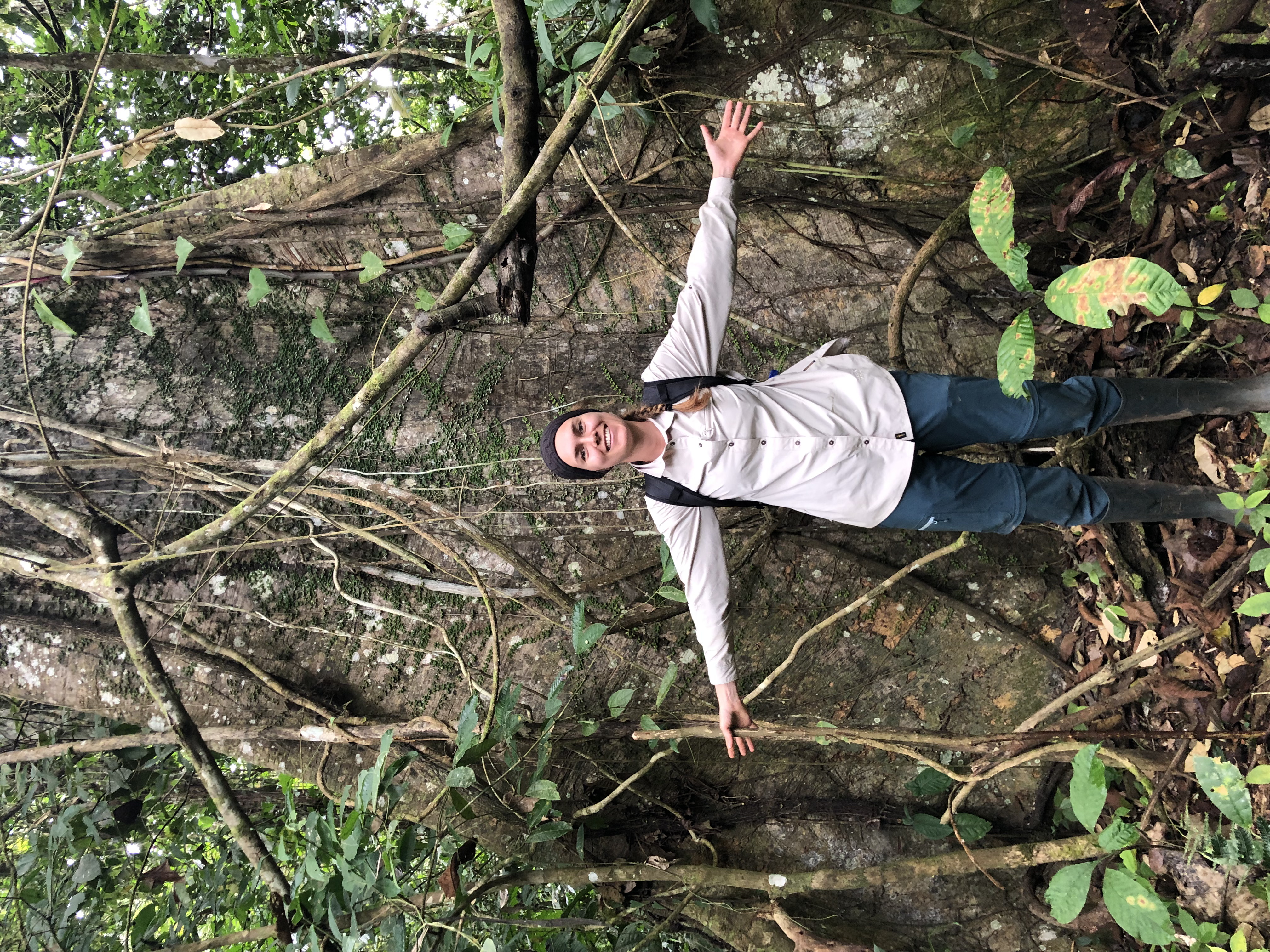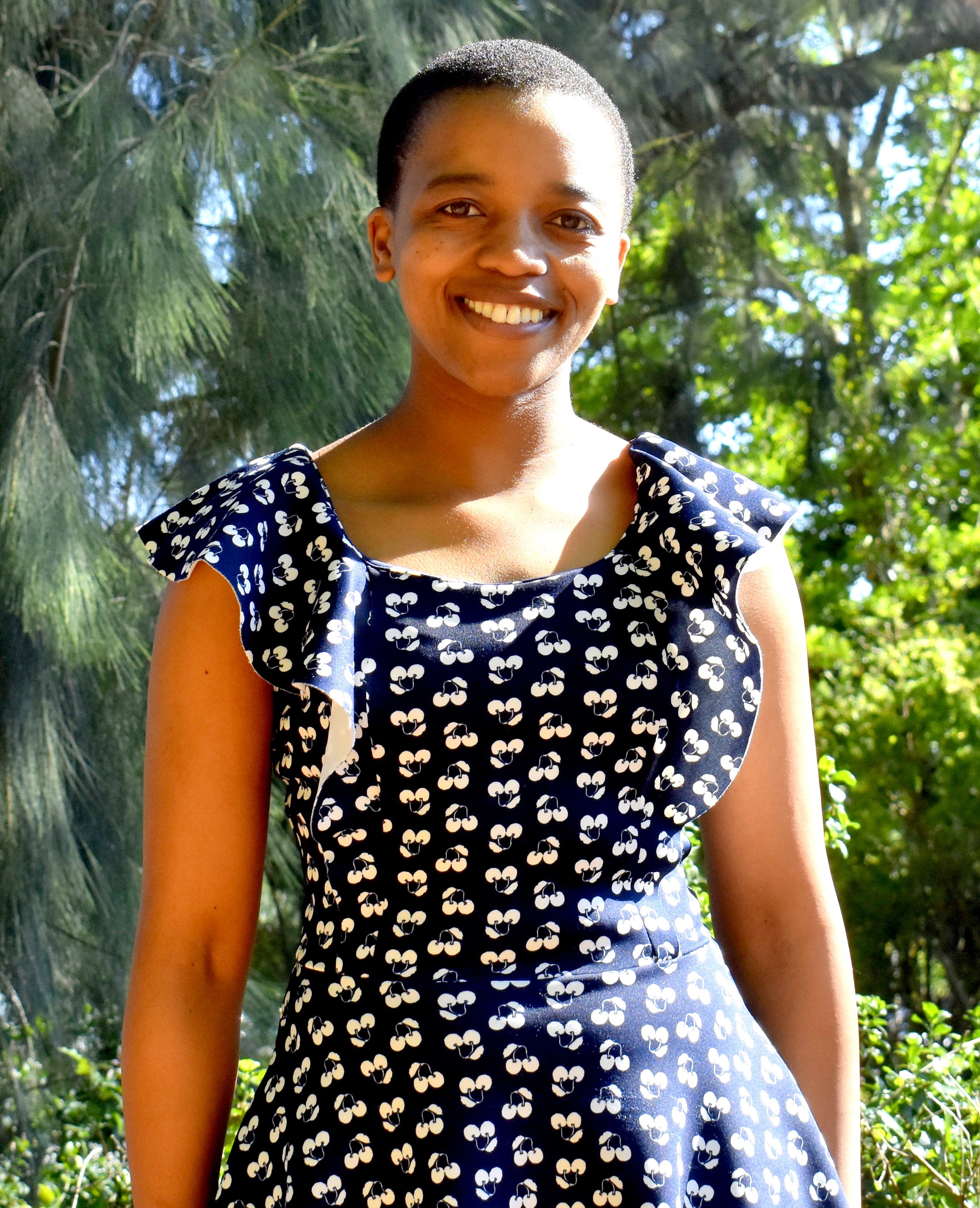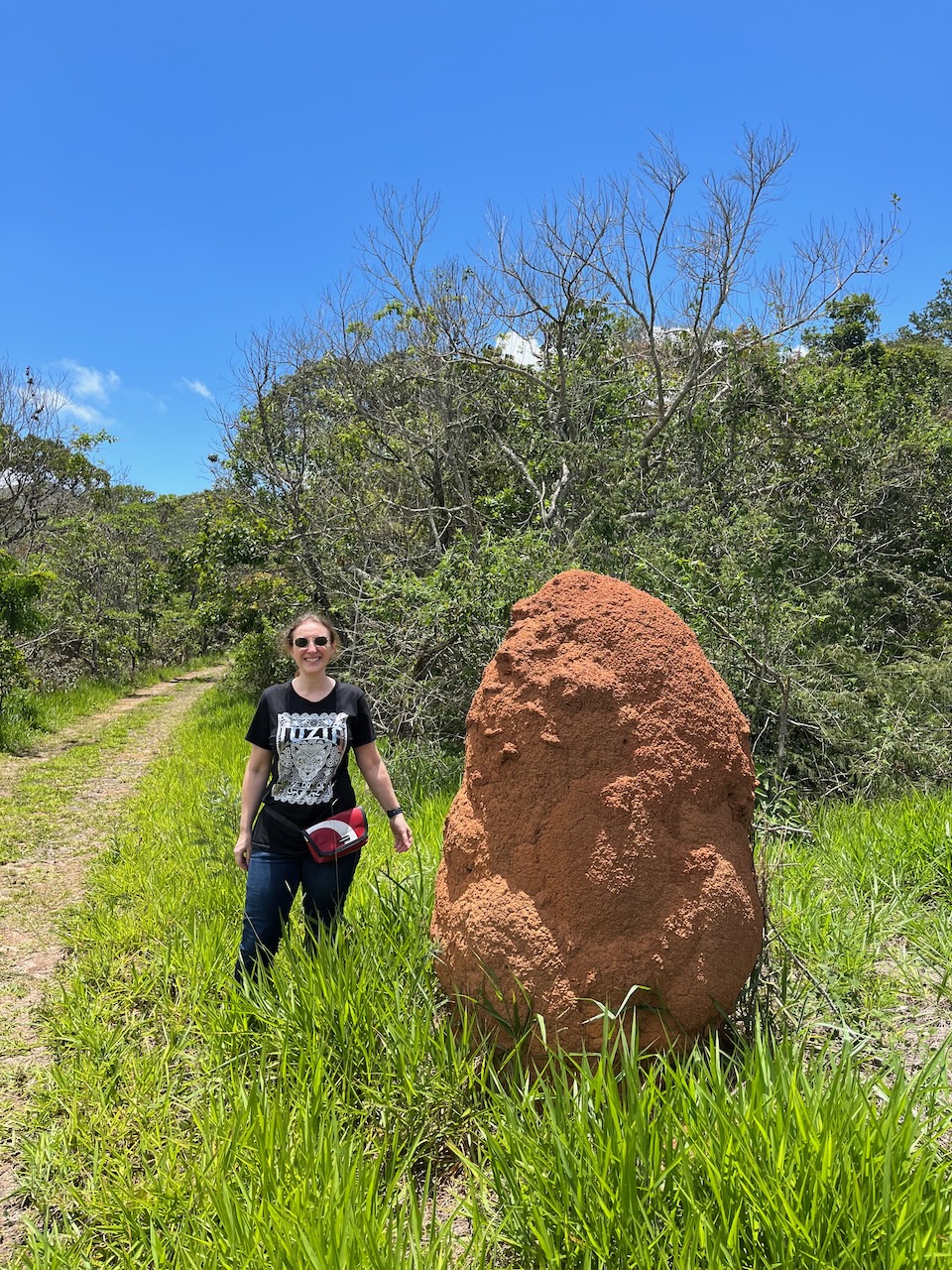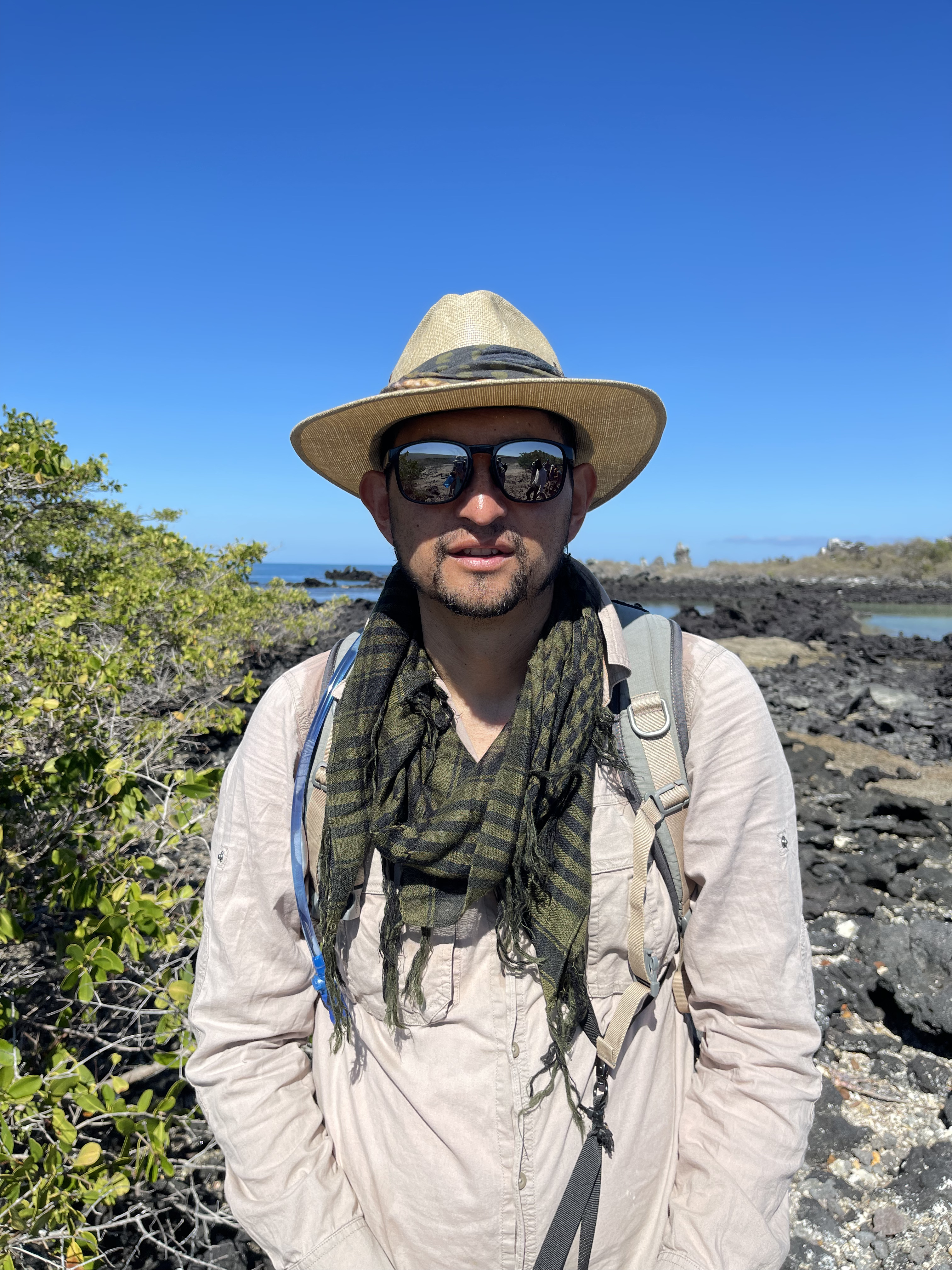
Keynotes

Nina Witteveen (https://orcid.org/0000-0003-0214-4238)
Institute for Biodiversity and Ecosystem Dynamics (IBED), Ecosystem and Landscape Dynamics (ELD) department at the University of Amsterdam (UvA) and the Forest Ecology & Forest Management (FEM) Group at the Wageningen University (WuR)
Dr. Nina Witteveen has a PhD in tropical palaeoecology from the University of Amsterdam (NL). Her research centers around long-term (>100 years) forest recovery following human land use, with a special focus on the Amazon rainforest. She does this by analyzing phytoliths (plant fossils) to reconstruct vegetation dynamics. Besides quantifying past ecological changes, she has collaborated with archaeologists to uncover how Indigenous and Maroon communities have shaped Surinamese rainforests. She received the ATBC Seed Grant, TreubMij and PE&RC award to research forests in Brownsberg Nature Park. As an educator and scientist, she aims to create an inclusive academic environment where diversity is celebrated.
Keynote:
Long-term forest recovery in Suriname
The role of Indigenous and local communities in protecting Amazonia’s biodiversity is increasingly recognized, but their historical impact on tropical forests remains understudied. Can we learn from past civilizations about sustainable forest management? This study travels back in time to Suriname, one of the most forested countries in the world, to examine how Indigenous and Afro-descendant communities have shaped rainforests over the last millennia. Using charcoal and phytoliths (silica microfossils), we reconstructed the vegetation and fire history of tropical forests near archaeological sites and detected various past human activities. Findings reveal the lasting ecological impact of historical Indigenous and Maroon peoples on modern Surinamese forests, through fire usage and palm enrichment. In particular, disturbance intensity and frequency seem important drivers of long-term forest recovery in the tropics.

Jose Iriarte (https://orcid.org/0000-0002-4636-5262)
Department of Archaeology, University of Exeter, UK Jose Iriarte is Professor of Archaeology at the Department of Archaeology, University of Exeter, UK.
He is an archaeologist and archaeobotanist whose research focuses on human-environmental interactions, the peopling of the Americas, the development of agricultural economies, and the emergence of complex societies in lowland South and Central America. He integrates archaeology, archaeobotany, palaeoecology, palaeoclimate, soil science, remote sensing (Lidar), ancient DNA, and modern ecology across Latin America to address these complex questions. He currently leads the ERC-funded LASTJOURNEY project, which explores human dispersal in Earth's last continental terra incognita. His most recent book, The Archaeology of Amazonia: A Human History, synthesizes his extensive research across the Amazon Basin.
Keynote:
The painted forest in the deep past
This presentation summarises interdisciplinary, multi-proxy case studies in reconstructing past Amazonian landscapes, emphasising Amazonian anthrosols' polyculture agroforestry systems. These ancient, intensive agroecosystems show how, through soil fertilisation, closed-canopy forest enrichment, limited clearing for crop cultivation and low-severity fire management, the forest was largely preserved while providing long-term food security and nutritional diversity. The comparison of fossil and modern records shows how these millennial-scale polyculture agroforestry systems have an enduring legacy on the modern composition of the forest, including legacy stands of edible plants such as palms and Brazil nut trees. These data challenge scenarios suggesting widespread deforestation of the Amazon during pre-Columbian times. These systems demonstrate successful, sustainable subsistence strategies and underscore a rich cultural and ecological heritage with significant implications for sustainable futures in the Amazon. They serve as a reminder of the region's immense biodiversity, vividly painted on the walls of Serranía de la Lindosa in the Colombian Amazon.

Nokubonga Mgqatsa (https://orcid.org/0000-0002-4636-5262)
Department of Zoology and Entomology, Rhodes University, South Africa
Dr Nokubonga Mgqatsa is a senior lecturer at Rhodes University in the Eastern Cape province, South Africa. From her earliest days, Dr Mgqatsa has been fascinated by the behaviour of large African mammals, recognizing their pivotal ecological role and their intricate web of relationships with other species. Her passion for research and study centers on the intricate tapestry of animal behaviour and the interwoven connections within terrestrial ecosystems. As such, her doctoral thesis focused on the impact of elephant tree toppling and the resultant implications for the surrounding biodiversity. Since joining Rhodes University in 2017, she has been teaching and supervising students, most of them also working on large mammals. She finds working with undergraduate and postgraduate students profoundly rewarding because it allows her to study a diverse range of animals.
Keynote:
Ecological interactions from an African perspective
Africa supports the highest diversity of ungulates and functional carnivore guilds compared to any other continent. Large African mammals interact in a complex and powerful fashion (i.e. how herbivores structure plant communities and how predator densities are correlated with prey densities). Drawing on research conducted across South African ecosystems, I will explore how these interactions not only shape local environments but also impact biodiversity at multiple scales. My talk will highlight the importance of looking beyond direct interactions, such as those between herbivores and plants or predator and prey, to understand broader ecological networks, including interactions among herbivore species. Ideally, I aim to show how African ecosystems, particularly those in South Africa offer valuable insights into ecosystem functioning and contribute to the development of conservation strategies that reflect the complexity of these systems.

Prof. Emma J. Sayer (https://orcid.org/0000-0002-3322-4487)
Institute of Botany, Ulm University, Germany; Lancaster Environment Centre, Lancaster University, UK; Smithsonian Tropical Research Institute, Panama.
Emma is a plant ecologist by background who incorporates aspects of plant ecophysiology, biogeochemistry and microbial ecology into her research to elucidate the impacts of global change on ecosystem functioning. She is particularly interested in understanding how plant-soil interactions govern carbon dynamics and nutrient cycling and in linking organismal traits to ecosystem processes. Emma first caught the 'tropical bug' during her Master's project in Belize. She then spent 7 years at the Smithsonian Tropical Research Institute (STRI) in Panama doing research for her PhD and postdoctoral fellowships and she continues to work at STRI on the long-term experiment she set up as a PhD student. Emma is also Senior Editor for Functional Ecology and dedicates considerable time and energy to effective science communication and public engagement.
Keynote:
Tropical forest productivity, element cycling and greenhouse gasses: What we’ve learned from a 20-year large-scale experiment
It’s surprising what we can learn by studying dead leaves: leaf litter is a vital source of nutrients for plant growth, and the high productivity of tropical forests on infertile soils is attributed to efficient cycling of nutrients via litterfall. Leaf litter also makes a major contribution to soil carbon storage and influences numerous other important ecosystem processes. In 2003, we began the Gigante Litter Manipulation Project – a large-scale experiment to test whether nutrient cycling via litterfall maintains tropical tree growth. 20 years of continuous monthly litter removal and litter addition treatments to large-scale forest plots have given us important insights into the role of leaf litter in forest productivity, nutrient cycling, and carbon storage. We have also learned some surprising things about the forest greenhouse gas balance along the way. I will present some of the advances afforded by this unique long-term experiment and highlight emerging knowledge gaps about tropical forest carbon and nutrient dynamics.

Gonzalo Rivas-Torres (https://orcid.org/0000-0002-2704-8288)
College of Biological and Environmental Sciences, Universidad San Francisco de Quito, Ecuador; Tiputini Biodiversity Station, Ecuador
Dr. Gonzalo Rivas-Torres is an Ecuadorian scientist and associate professor at the Universidad San Francisco de Quito, where he is affiliated with the College of Biological and Environmental Sciences and the Galápagos Institute for the Arts and Sciences. He is also the Director of the Tiputini Biodiversity station, located within the world-famous Yasuní Biosphere Reserve. He holds a Ph.D. in Wildlife Ecology and Conservation from the University of Florida, and a Master’s degree in Ecology, Evolution, and Systematics from the University of Missouri-Saint Louis. Dr. Rivas-Torres specializes in plant ecology, particularly in the Amazonian and Galápagos ecosystems. His research focuses on topics such as plant population biology, ecosystems conservation, the dynamics of invasive species, and the role of humans in the spread of these species. He is known for his work on spatial ecology and the use of drones for ecological studies in these regions.
Keynote:
Utilizing drones and advanced technologies for mapping and protecting tropical ecosystems: The Ecuadorian model.
To achieve effective conservation at the necessary pace to protect tropical ecosystems, which are currently under significant threat, technological tools are essential. Among these tools are drones, or unmanned aerial vehicles (UAVs). Due to their ability to carry various sensors and collect substantial amounts of data from remote tropical regions, drones have become vital allies in the conservation of these ecosystems. In this presentation, Gonzalo Rivas-Torres will discuss the results and experiences from his work with drones in the Galápagos and northwestern Amazon, demonstrating how this technological tool is transforming research and conservation efforts in these critically important ecosystems.

Joeri Zwerts (https://orcid.org/0000-0003-3841-6389)
Department of Biology, Utrecht University, The Netherlands
Joeri Zwerts is an Assistant Professor at Utrecht University. His research focuses on wildlife conservation in tropical forest landscapes impacted by agro-commodities such as timber and palm oil. He also focuses on the advancement of wildlife monitoring methods, particularly using camera traps and bio-acoustics. Key themes in his work include the effects of human activities on wildlife, landscape connectivity and human wildlife conflict. His aim is to develop evidence-based strategies that promote sustainable practices which benefit both wildlife and human well-being, to address the challenge of combining growing resource needs with nature conservation. Joeri has extensive experience working in Suriname, Western Equatorial Africa, and Indonesia.
Keynote:
Protecting elephants in the hardware store
Growing global human population and prosperity will require progressively more resources in the decades to come, further pressuring biodiversity. Simultaneously, international pledges and legislation for nature conservation are becoming increasingly ambitious. This raises the question: how can we address the challenge of combining growing resource needs with nature conservation? During this keynote I will dive into the case of tropical timber. More than a quarter of the world’s, hyper-biodiverse, tropical forests are exploited for tropical hardwoods. Logging impacts biodiversity in these ecosystems, primarily through the creation of forest roads that facilitate hunting for wildlife over extensive areas. Forest management certification schemes such as the Forest Stewardship Council (FSC) are expected to mitigate impacts on biodiversity, but very little robust evidence is available about the effectiveness of FSC certification because of research design challenges, predominantly limited sample sizes. How can we determine if investing in FSC is worth the investment, and why is it crucial to quantify impacts? In my presentation, I will share the findings of an ambitious research project that explores these questions and takes you through the process of obtaining the results.
